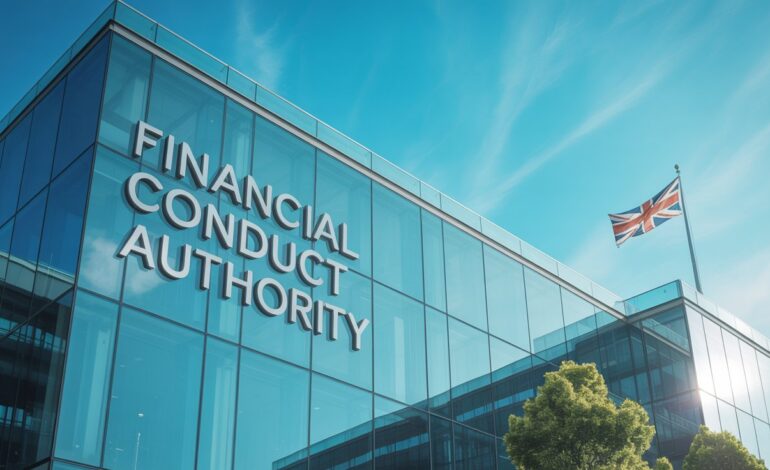FCA Meaning A Guide to the Financial Conduct Authority and its role in AML.

FCA Meaning Explained
The FCA meaning is the Financial Conduct Authority which is the independent financial regulator body in the United Kingdom. The FCA was founded in 2013 and it regulates financial markets, companies, and services with the aim of maintaining integrity, transparency, and consumer protection.
It is important in implementing the Anti-Money Laundering (AML) and Countering the Financing of Terrorism (CFT) laws. These structures play a crucial role in ensuring the financial system in the UK remains trusted and that financial crimes are avoided like money laundering and identity fraud.
In simple terms, FCA makes sure that all financial institutions, both the old-fashioned banks and the new fintech companies, are ethical and responsible in their operations.
Learning the Role of the Financial Conduct Authority.
Financial Conduct Authority (FCA) regulates more than 50,000 financial service providers, which enhances stability, competition, and consumer protection. The FCA is a non-governmental or non-parliamentary body, which is financed by the charges imposed on the companies it regulates.
Consumer Protection
The FCA has one of its main goals to make sure that the consumers are treated fairly, provided with clear information and quality services. This implies that financial products should be transparent and the clients need to be aware of the risks involved in making the decisions.
Market Integrity
Another important concern is keeping the market confident. The FCA implements AML rules and inspects malpractice to curb manipulation, fraud, and other unethical acts in the financial system.
Favoring Healthy Competition.
The FCA promotes innovation by permitting new market participants such as fintech startups to compete with established participants as long as they have effective AML compliance systems.
FCA Regulation of AML and CFT Laws.
The FCA has its fight against financial crime anchored on the AML and CFT laws. These legislations compel financial institutions to implement strict compliance policies to identify and avert illegal financial practices.
Important AML and CFT Law Objectives.
Prevent Money Laundering: Identify and stop the exchange of illegal money.
Combat Terrorist Financing: Find and stop transactions associated with terrorist organizations.
Enhance Openness: Do not use financial systems to commit illegal acts.
To meet these requirements, firms need to have internal policies, carry out risk assessments and keep current records of clients.
FCA AML Regulations Enforcement.
Financial Conduct Authority (FCA) implements AML rules by continuously supervising, investigating and enforcing proof of income. It makes companies responsible in creating strong compliance systems.
Risk-Based Approach
FCA uses a risk-based supervision model, which focuses on a high-risk area like banking, real estate, and investment management. This enables the FCA to invest in areas where the risk of money laundering is high.
Frequent Audits and Inspections.
Financial companies must make frequent reports and be subject to compliance audits. The FCA evaluates them to make sure that businesses are properly enforcing the laws of AML and CFT.
Punishment and Enforcing Measures.
Companies that do not comply are fined heavily, prosecuted or banned. The strict implementation by the FCA makes sure that transparency and accountability is maintained by all institutions.
The significance of KYC Checks in FCA Compliance.
KYC checks (Know Your Customer) are an essential part of the AML compliance as regulated by FCA. They make sure that the financial institutions are aware of their customers and are able to detect suspicious activities at an early stage.
How KYC Checks Work
Customer Identification:
Companies gather and confirm customer information, including name, address, and identification issued by the government.
Customer Due Diligence (CDD):
The institutions evaluate the risk that the individual client is likely to pose depending on his profile, occupation, and financial activity.
Ongoing Monitoring:
Constant surveillance enables companies to identify abnormalities, e.g. suspicious transactions or abnormal behavior.
The FCA assists in avoiding identity fraud and safeguarding consumers and financial institutions against criminal exploitation by enforcing KYC checks.
How to prevent Identity Fraud Under FCA.
Financial systems all over the world are threatened by identity fraud. Criminals open accounts with stolen or falsified identities to send illegal money, bypass KYC, or open new accounts.
The FCA is fighting this menace through requiring robust customer verification procedures and promoting the application of AI-based and biometric technologies.
Digital Identity Check.
Financial institutions are embracing facial recognition, document authentication and biometric data to authenticate identities in real time. This minimizes chances of fraudulent accounts.
Transaction Monitoring
Constant analysis of transactions aids in identifying suspicious transactions like abnormal transfers, abnormal account activities or relations with high-risk regions.
Consumer Awareness
Another aspect that is focused by the FCA is on consumer education, which is aimed at enabling individuals to identify scams and protect their personal data against cybercriminals.
The Implications of Non-Compliance.
Disregard of the AML regulations of the FCA might cause serious financial and reputational losses to companies.
Financial Penalties
Those who do not comply are fined large amounts that may run in millions. Such fines act as deterrents and help enforce the need to comply.
Suspension or Revocation of a license.
The FCA can also suspend or cancel the license of a firm that does not comply with the AML and CFT requirements and virtually shut down its operations.
Reputational Damage
One compliance breach may ruin years of trust. Companies that do not consider FCA standards will lose clients, investors, and partners.
Compliance with AML is also not only a regulatory requirement but also a fundamental part of the sustainability of the business in the long term.
The Future of FCA Regulation and AML Compliance.
Financial sector is developing at a very high pace and so is the FCA regulation strategy. AML compliance strategies currently revolve around technology.
Rise of RegTech
Regulatory Technology (RegTech) assists companies to automate compliance activities, identify fraud in a better way, and decrease the number of manual errors. The accuracy and speed of transaction monitoring are enhanced by AI and machine learning.
Global Collaboration
The FCA collaborates with other organizations around the world such as the Financial Action Task Force (FATF) to align global AML and CFT standards, which is consistent across borders.
Constant Education and Change.
Companies are advised to educate employees on a regular basis to identify the new risks and be informed of the new developments in FCA regulations.
Conclusion
The FCA meaning can offer a good explanation of how the UK continues to be a financial powerhouse in the world. Financial Conduct Authority (FCA) has a significant role in the enforcement of the AML and CFT legislation, compliance with AML, and the encouragement of KYC checks to prevent identity fraud and financial crime.
Through innovation, international collaboration, and high implementation, the FCA has been able to enhance financial security, consumer protection, and maintain the integrity of the financial system.









